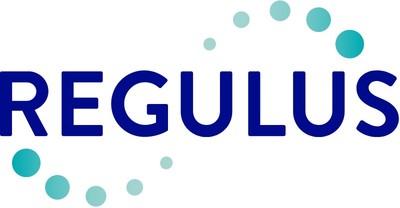Regulus Therapeutics Announces Initiation of Preclinical Studies in Amyotrophic Lateral Sclerosis under a Collaboration Agreement with Harvard's Brigham and Women's Hospital
Regulus Therapeutics (RGLS) has announced the initiation of preclinical studies targeting miR-155 for the treatment of Amyotrophic Lateral Sclerosis (ALS), in collaboration with Brigham and Women's Hospital. This collaboration, established in September 2021, aims to explore the efficacy of miR-155 inhibitors in both in vitro and in vivo models of ALS. Preliminary data is anticipated in the second half of 2022. Research indicates that blocking miR-155 can positively impact ALS progression, highlighting the potential of these compounds as therapeutic candidates for this severe neurodegenerative disease.
- Initiation of preclinical studies on miR-155 inhibitors for ALS treatment.
- Collaboration with leading researchers at Brigham and Women's Hospital.
- Positive preliminary data expected in the second half of 2022.
- Previous research supports the therapeutic potential of miR-155 inhibitors.
- None.
Insights
Analyzing...
- Preliminary data are expected in the second half of 2022
SAN DIEGO, March 24, 2022 /PRNewswire/ -- Regulus Therapeutics Inc. (Nasdaq: RGLS), a biopharmaceutical company focused on the discovery and development of innovative medicines targeting microRNAs (the "Company" or "Regulus"), today announced the initiation of studies evaluating a library of oligonucleotides designed to block miR-155 for the potential to treat Amyotrophic Lateral Sclerosis (ALS or Lou Gehrig's disease) under a collaboration agreement with the laboratories of Oleg Butovsky, Ph.D., and Howard L. Weiner, M.D., at Brigham and Women's Hospital (BWH). The agreement, effective since September 2021, encompasses the investigation of the biologic effects of miR-155 inhibitors in both in vitro and in vivo models of ALS.
Dr. Butovsky is an Associate Professor of Neurology at Harvard Medical School and a Senior Scientist at BWH. Dr. Weiner is the Robert L. Kroc Professor of Neurology at the Harvard Medical School, Director and Founder of the Partners Multiple Sclerosis Center and Co-Director of the Center for Neurologic Diseases at BWH. The study plan focuses on the evaluation of the Regulus-designed compounds that inhibit miR-155 activity in microglia cell-based assays and in animal models of the disease, to identify potential candidates to advance into further studies. Results from these initial studies will be used to guide the design of future experiments in additional animal models of the disease and characterize their properties. Combined, these data will be used in an effort to identify anti-miR-155 lead compounds exhibiting robust pharmacologic profiles and enable their further preclinical therapeutic evaluation and initial testing in subjects with ALS.
"In addition to our focus on genetic kidney disease, Regulus has a growing research interest in the opportunity to apply our technology to significant unmet needs in CNS disease. We are excited by the initiation of this research collaboration with Drs. Butovsky and Weiner, who are leading ALS researchers at Brigham and Women's Hospital, affiliated with Harvard Medical School," commented Denis Drygin, Ph.D., CSO of Regulus Therapeutics. "ALS is a devastating, progressive neurodegenerative disease with a major unmet medical need. We look forward to the preliminary data, which are expected in the second half of 2022."
Prior research published by BWH demonstrates that miR-155 plays an important role in the pathogenesis of ALS and supports this target as a potential therapeutic approach to address this devastating disease. Researchers at BWH identified a disease-associated microglia signature in ALS. In animal models of ALS, miR-155 was found upregulated in microglia and associated with disease progression. Importantly, miR-155 was also elevated in the spinal cord of patients with ALS. Blocking miR-155 in animal models through either genetic deletion or with compounds that blocked miR-155 ameliorated disease. Anti-miR-155 treatment suppressed disease-associated cytotoxic microglia, and resulted in robust improvement in clinically relevant disease endpoints, including prolongation of survival.
"This collaboration with Regulus will build upon our body of research in ALS," said Tracy Batchelor, chairman of Neurology at BWH, "We are pleased to work with a company that shares our mission to understand the pathophysiology of ALS with the objective of developing novel therapies to treat this devastating disease. "
Regulus Therapeutics Inc. (Nasdaq: RGLS) is a biopharmaceutical company focused on the discovery and development of innovative medicines targeting microRNAs. Regulus has leveraged its oligonucleotide drug discovery and development expertise to develop a pipeline complemented by a rich intellectual property estate in the microRNA field. Regulus maintains its corporate headquarters in San Diego, CA.
Statements contained in this presentation regarding matters that are not historical facts are "forward-looking statements" within the meaning of the Private Securities Litigation Reform Act of 1995, including statements associated with the Company's preclinical programs, including the potential identification and development of therapeutic candidates in ALS. Because such statements are subject to risks and uncertainties, actual results may differ materially from those expressed or implied by such forward-looking statements. Words such as "believes," "anticipates," "plans," "expects," "intends," "will," "goal," "potential" and similar expressions are intended to identify forward-looking statements. These forward-looking statements are based upon Regulus' current expectations and involve assumptions that may never materialize or may prove to be incorrect. Actual results and the timing of events could differ materially from those anticipated in such forward-looking statements as a result of various risks and uncertainties, which include, without limitation, risks associated with the process of discovering, developing and commercializing drugs that are safe and effective for use as human therapeutics and in the endeavor of building a business around such drugs, and the risk additional toxicology data may be negative. In addition, while Regulus expects the COVID-19 pandemic to adversely affect its business operations and financial results, the extent of the impact on Regulus' ability to achieve its preclinical and clinical development objectives and the value of and market for its common stock, will depend on future developments that are highly uncertain and cannot be predicted with confidence at this time, such as the ultimate duration of the pandemic, travel restrictions, quarantines, social distancing and business closure requirements in the U.S. and in other countries, and the effectiveness of actions taken globally to contain and treat the disease. These and other risks are described in additional detail in Regulus' filings with the Securities and Exchange Commission, including under the "Risk Factors" heading of Regulus most recently year-end and quarterly report on Form 10-K. All forward-looking statements contained in this press release speak only as of the date on which they were made. Regulus undertakes no obligation to update such statements to reflect events that occur or circumstances that exist after the date on which they were made.
![]() View original content to download multimedia:https://www.prnewswire.com/news-releases/regulus-therapeutics-announces-initiation-of-preclinical-studies-in-amyotrophic-lateral-sclerosis-under-a-collaboration-agreement-with-harvards-brigham-and-womens-hospital-301509667.html
View original content to download multimedia:https://www.prnewswire.com/news-releases/regulus-therapeutics-announces-initiation-of-preclinical-studies-in-amyotrophic-lateral-sclerosis-under-a-collaboration-agreement-with-harvards-brigham-and-womens-hospital-301509667.html
SOURCE Regulus Therapeutics Inc.








